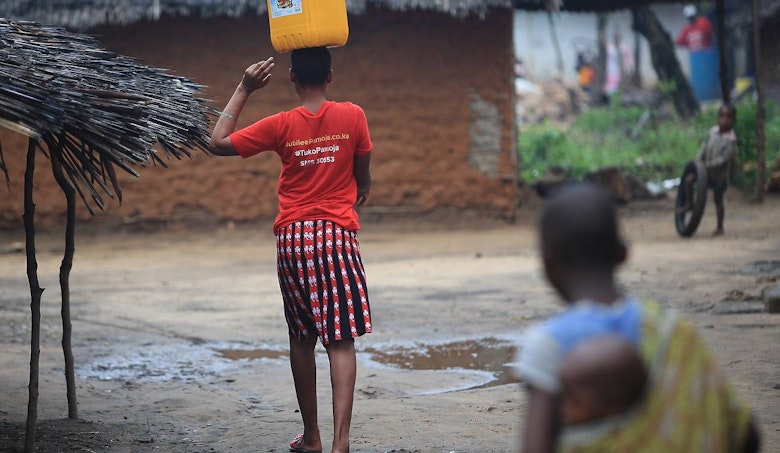Building a Future project (Kenya)
The Building a Future project is a twenty one months project implemented in coastal Kenya by Terre des Hommes Netherlands and Kesho Kenya. It aims to reduce child trafficking and child sexual exploitation (CSE) in Kilifi (Malindi, Watamu and Mtwapa) and Kwale (Lunga Lunga and Msambweni) counties by improving access to inclusive quality education and sustainable household livelihoods for child survivors and those at risk of sex trafficking. Prevention structures in communities and schools will also be strengthened through this project. The project is funded by the U.S. Department of State’s Office to Monitor and Combat Trafficking in Persons through the Global Fund to End Modern Slavery (GFEMS).
Why this is important
An estimated number of 19,000 children in Kenya are survivors of sex trafficking. Majority are girls but there is also a significant number of boys. Five towns in Kwale and Kilifi counties at the Coast are hotspots for child sex trafficking: Msambweni, Lunga Lunga, Mtwapa, Watamu and Malindi.
A 2013 study by Terres des Hommes Netherlands shows that one out of four children sampled in Kilifi had engaged in child sex trafficking, of which 12.7% were only 10 to 12 years old.
Child sex trafficking refers to an act of sexually abusing a child for economic gains, where sexual abuse is exchanged for anything of value (money, goods, or services) with the child or a third person(s). Child sex trafficking is the recruitment, harbouring, transportation, provision, obtaining, patronising, soliciting, or maintaining of a child for the purposes of a commercial sex act. It occurs in many forms, for instance; child sexual abuse materials, sexual exploitation of children in travel and tourism, and technology enabled sexual exploitation.
Some of the key drivers for child sex trafficking include:
- Systemic poverty
- Scarce income opportunities
- Deep rooted negative societal norms that include parental liberal attitudes towards sex for commercial gains
- Culture of male dominance where women and girls’ voices are not considered as important
- Harmful practices where girls’ education is not a priority and is often put aside in favor of marriage including with foreign tourists
Child sex trafficking constitutes a form of coercion and violence against children, and amounts to a contemporary form of slavery. It impacts not only negatively on a child and his/her family, but also on the community, institutions, the private sector and the state. This calls for action, to tackle child sex trafficking.
What we do
The Building a future project will protect 210 child sex trafficking victims (130 younger and 80 older survivors) and prevent 1,800 children at risk from child sex trafficking.
Around 130 young sex trafficking survivors (9-15 years) will be supported to return and remain in school and 80 older sex trafficking survivors (16-18 years) will be trained in vocational skills to increase their chances of finding a job and earn a sustainable income. Children at high risk of sex trafficking will be prevented from sexual exploitation through empowerment in child rights clubs (600 child participants) and through peer to peer engagement activities (1,200 children). In addition, community child protection committees will strengthen prevention structures in communities through dialogues and community engagements.
How we work
Participatory approach: Community champions will be involved to conduct identification, community engagements/dialogues and dissemination of developed messages; private sector companies to provide internships, apprenticeships and jobs opportunities to CSE survivors/victims; and, peer support and child rights clubs in schools for ownership and information dissemination to other children to beef up self-protection.
Provision of basic education support: Basic education support will be provided to younger CSE survivors/victims and children at risk; older survivors/victims of CSE will be supported with vocational skills training and job perspectives.
Livelihoods support: Vulnerable caregivers and communities will be supported through livelihood initiatives to enhance the resilience of families and communities to protect children from all forms of exploitation and violence, especially child trafficking.
Community dialogues/sensitisation: A safe and supportive environment and culture will be created at the family and community levels by changing negative social norms through sensitisation activities.
Stakeholder engagement: The project will work with key stakeholders - government and private sector, civil societies and established/already existing community based structures in target communities.
Knowledge management: Learning and knowledge sharing will be promoted through documentation of case studies and lessons learnt; and through establishing constructive feedback mechanisms for effective and efficient service delivery to beneficiaries.

